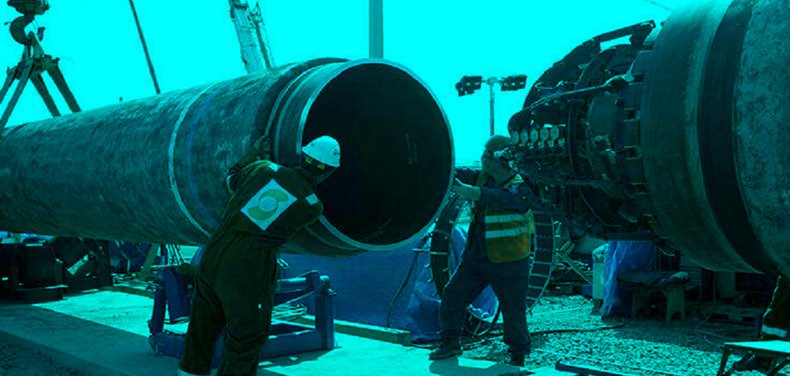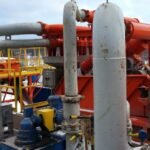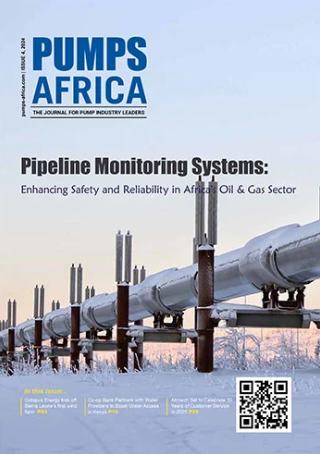Africa’s economic transformation and industrialization are intrinsically linked to its vast natural resources, with pipeline projects playing a critical role in delivering energy solutions across the continent and beyond. From oil and gas transportation to regional economic integration, these monumental initiatives symbolize Africa’s ambition to unlock its potential. Below, we explore key upcoming pipeline projects shaping the continent’s energy landscape, examining project names, investments, operations, lengths, and timelines.
1. Central African Pipeline System (CAPS)
- Investment: $30 billion
- Pipeline Operation: Multinational crude oil and refined products transportation
- Length: 6,500 km
- Timeline: Scheduled for completion by 2030
The Central African Pipeline System (CAPS) is a groundbreaking initiative aimed at addressing energy transportation challenges in Central Africa. Spanning 6,500 kilometers, CAPS is set to interconnect several countries, facilitating the efficient movement of crude oil and refined petroleum products. The pipeline will also enhance regional energy security, reduce transportation costs, and contribute to economic development in nations like Chad, Sudan, and the Democratic Republic of Congo. Once operational, CAPS is expected to transform the region’s energy infrastructure, solidifying Central Africa’s role in global energy markets.
2. Nigeria-Morocco Gas Pipeline
- Investment: $25 billion
- Pipeline Operation: Natural gas transportation
- Length: 5,600 km
- Timeline: Phased implementation to conclude by 2046
A hallmark of African cooperation, the Nigeria-Morocco Gas Pipeline is set to link natural gas resources from Nigeria to Morocco while traversing 11 other West African nations. Extending over 5,600 kilometers, the project seeks to provide reliable energy access, promote industrial growth, and stimulate economic development across West Africa. The pipeline’s construction is expected to occur in phases, with eventual integration into the European gas network. It is anticipated to reduce energy poverty, promote regional stability, and position Africa as a key player in the global energy economy.
- Investment: $13 billion
- Pipeline Operation: Export of natural gas from Nigeria to Europe
- Length: 4,128 km
- Timeline: Completion expected by 2035
The Trans-Sahara Gas Pipeline (TSGP) represents a strategic effort to link Africa’s abundant gas reserves with European markets. Stretching 4,128 kilometers, the TSGP will connect Nigeria to Algeria, enabling the export of natural gas through existing pipelines to Europe. With a $13 billion investment, this project aims to diversify Europe’s energy supply while bolstering economic growth in participating African countries. The pipeline’s development will involve advanced technologies to ensure safety and environmental sustainability, cementing its role as a key pillar in Africa’s energy infrastructure.
- Investment: $6 billion
- Pipeline Operation: Natural gas transportation
- Length: 2,600 km
- Timeline: Expected completion by 2030
The African Renaissance Pipeline Project is a significant step toward energy self-reliance for Southern Africa. Running 2,600 kilometers, the pipeline will connect Mozambique’s Rovuma Basin gas fields to South Africa. This ambitious initiative aims to address energy shortages, promote industrialization, and stimulate economic growth in the region. With a $6 billion investment, the project underscores the importance of regional collaboration in unlocking Africa’s energy potential. Upon completion, it is expected to enhance energy access and drive economic integration in Southern Africa.
- Investment: $3 billion
- Pipeline Operation: Crude oil transportation
- Length: 1,443 km
- Timeline: Projected to begin operations by 2025
The East African Crude Oil Pipeline (EACOP) is poised to revolutionize oil transportation in East Africa. Connecting Uganda’s oil-rich Lake Albert region to the Tanzanian port of Tanga, the 1,443-kilometer pipeline will facilitate the export of crude oil to international markets. The $3 billion investment project is expected to generate significant economic benefits, including job creation and revenue generation for Uganda and Tanzania. However, the project has faced criticism from environmental activists, emphasizing the need for responsible implementation to mitigate its ecological impact.
- Investment: $2.8 billion
- Pipeline Operation: Domestic natural gas transportation
- Length: 618 km
- Timeline: Completion targeted for 2025
The Ajaokuta–Kaduna–Kano (AKK) Gas Pipeline is a flagship project under Nigeria’s gas infrastructure blueprint. Stretching 618 kilometers, the AKK pipeline will transport natural gas from southern Nigeria to the northern regions, promoting industrialization and economic development. With a $2.8 billion investment, the project is expected to provide cleaner energy, reduce dependence on imported fuel, and support Nigeria’s transition to a gas-based economy. Its timely completion will mark a significant milestone in achieving energy sustainability in Nigeria.
Future Outlook
Despite the challenges, Africa’s pipeline projects represent a transformative opportunity for the continent. With strategic planning, international cooperation, and sustainable practices, these initiatives can unlock Africa’s energy potential and drive economic progress. Governments and private stakeholders must work collaboratively to address the hurdles and ensure that these projects deliver maximum benefits to the people of Africa.
Africa’s key pipeline projects—from the ambitious Central African Pipeline System to the transformative East African Crude Oil Pipeline—exemplify the continent’s drive to harness its natural resources for sustainable development. These initiatives hold the promise of economic growth, energy security, and regional integration, solidifying Africa’s position in the global energy market.







